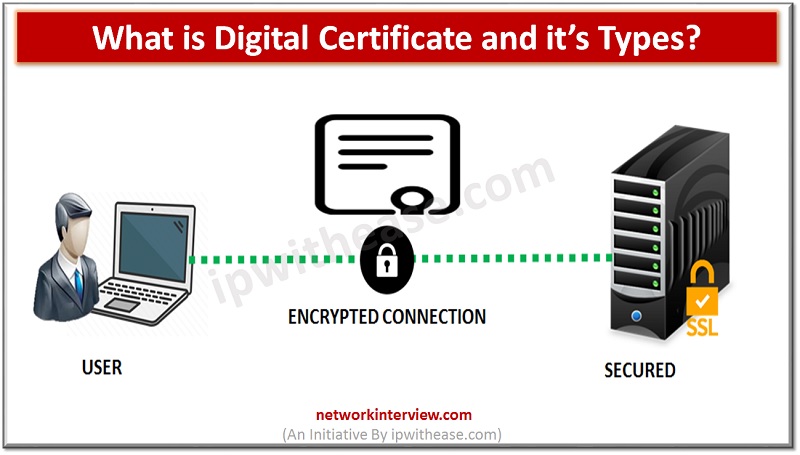
What is Digital Certificate and it’s Types?
A digital certificate, which is also termed as public key certificate is applied to cryptographically link up the ownership of public key to the entity owning the same. Here, we are going to get a better insight of what is digital certificate and its types and try to understand them in detail. The digital certificate encrypt and authenticate the public key to certify and identify information with the help of a digital signature. The digital signature is a unique code provided by the issuer of the certificate validating the authenticity, credibility and access of the bearer.
Use of a Digital Certificate
The basic usage of digital certificates is in public key cryptography functions. They are used to introduce safe SSL connections between web servers and web browsers. Digital certificates are practically used by all the major web servers and web browsers in order to render assurance that the concerned published content has not been edited or changed by any sort of unauthorized sources. The key sharing is done on the basis of these certificates for the successful encryption and decryption of the web content. The privacy of the data is one of the major objectives fulfilled by the usage of digital certificates.
Types of Digital Certificates
There are different kinds of digital certificates that can be employed by web browsers and web servers in order to authenticate the content and make the access more transparent across the Internet. Prior to understanding what is digital certificate and its types, it is essential to realize that the role of digital certificates is to link a web server for the domain to the organization or individual owning that particular domain.
Let us get an insight of some of the most popular and useful types of digital certificates-
- DV SSL (Domain Validated) Certificates: They provide least amount of assurance regarding the certificate holder. The applicants for Domain Validated certificates are only required to demonstrate the fact that they carry the right to utilize the domain name. Yes, these certificates provide assurance regarding data being received and sent by the certificate holder, they provide no guarantees regarding who that specific entity is.
- OV SSL (Organization Validated) Certificates: These certificates offer further assurances regarding the certificate holder; additionally to confirm that the applicant carries the right to utilize the domain, OV SSL digital certificate applicants undergo extra verification about their domain ownership.
- EV SSL (Extended Validation) Certificates: They are issued once the applicant successfully prove his or her identity and gratify the CA. The process would incorporate the authentication process validating the existence of the concerned entity applying for the digital certificate. Once the identity verification matches with the official records, the entity is authorized for the usage of the domain and the owner of the entity does has the record of successful certificate issuance.
- Code Signing Certificates: These certificates are generally issued to the individuals, organizations and enterprises that are in the business of publishing software. The primary use of these certificates is sharing the public keys that are meant to sign software code, including software updates and patches. It is the code signing certificates that certify the credibility and legitimacy of the signed code.
- Client Certificates: Also termed as digital ID, these are the types of digital certificates that are issued to the individuals who would like to bind their identity with respect to the public key within the certificate. These certificates are useful for the individuals who would like to carry certificates in order to digitally sign messages or other kinds of data. These certificates also enable the individuals to use their private keys in order to encrypt the data that can be later decrypted by the recipients with the help of public key provided within the client certificate.
Related – SSL Certificate types
Now, while concluding this page of information, it is fully expected that the time that you have spent here has provided all the answers about what is digital certificate and its types and where they can be used. The digital certificates that we discussed above cover almost all major forms of entities that require certificates to successfully execute their operations both online and offline.
Tag:Security



